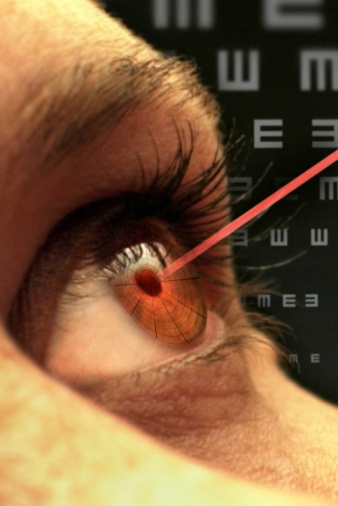

The Facts About the Eye Health Industry
Coffee is an 18 billion dollar a year industry in the U.S. and 54% of Americans drink it on a daily basis. And if you are a coffee drinker you might be advised to think twice, because there is a now an interesting study regarding coffee and the development of glaucoma. Harvard researchers noted that Scandinavian Countries have the highest caffeinated coffee consumption rates as well as the highest rates of exfoliation glaucoma, which is the primary cause of open-angle glaucoma. This prompted the researchers to conduct a study in order to determine whether or not there is a possible correlation between the two.
RELATED READING: Blurry and Poor Vision Not Caused by Aging
The Study on Damage
The study was conducted on approximately 79,000 females and 41,000 males. All were at least 40 years old and had been given regular eye examinations from the 1980’s onward. The researchers asked the participants about their coffee habits and then compared their consumption habits to their eye health related medical records. The researchers found that the individuals who drank three or more cups of caffeinated coffee daily had a markedly higher risk of developing exfoliation glaucoma compared to the individuals who did not drink coffee at all. Although previous studies have found a small link between caffeine consumption and increased glaucoma risk, the researchers of this particular study were unable to find any association between glaucoma risk and the consumption of other caffeinated products such as tea, soda or chocolate.
Conclusion and What it Means for Eye Health
Although this study is alarming, it should be noted that numerous scientific studies have found coffee to contain health promoting properties. Coffee contains antioxidants and consuming it regularly is recommended by some health professionals as a preventative measure against high blood pressure, elevated cholesterol levels, myocardial infarction and diabetes. Also, a single study is not enough to determine a coffee/eye damage correlation with absolute certainty because there is an infinite number of variables that may come into play. For instance, individuals with a high coffee intake may tend to work more irregular hours which can interfere with circadian rhythms, and circadian rhythm interruptions may be linked to poor eye health. Also, a high coffee intake may be associated with higher stress levels which can affect eye health negatively. As such, Jae Hee Kang, the author of this study warns that “Because this is the first study to evaluate the association between caffeinated coffee and exfoliation glaucoma in a U.S. population, confirmation of these results in other populations would be needed to lend more credence to the possibility that caffeinated coffee might be a modifiable risk factor for glaucoma.”
Advertisement
On any matter relating to your health or well-being, please check with an appropriate health professional. No statement herein is to be construed as a diagnosis, treatment, preventative, or cure for any disease, disorder or abnormal physical state. The statements herein have not been evaluated by the Foods and Drugs Administration or Health Canada. Dr. Marchione and the doctors on the Bel Marra Health Editorial Team are compensated by Bel Marra Health for their work in creating content, consulting along with formulating and endorsing products.